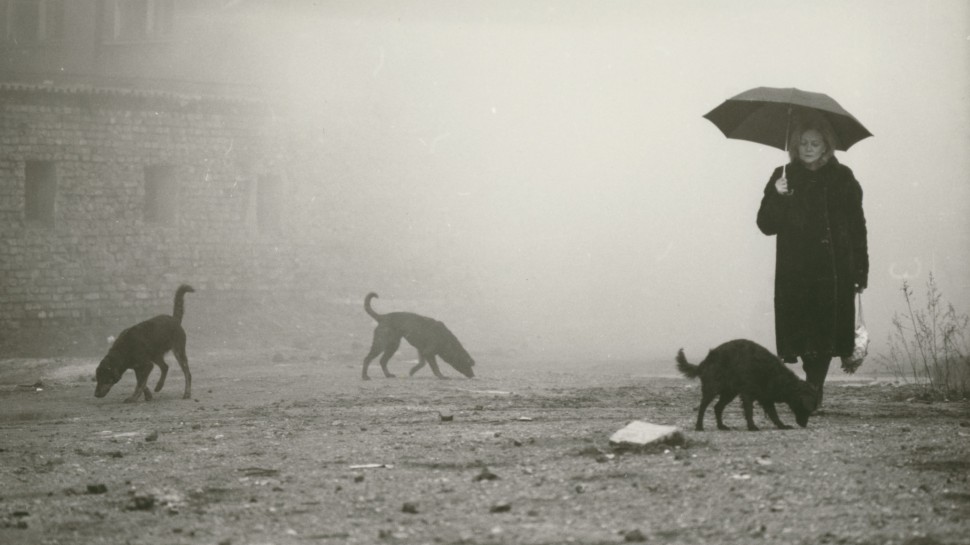
Melancholy Resistance: The Rainy Worlds of László Krasznahorkai and Béla Tarr
It is a testament to the power and originality of the films of Hungarian director Béla Tarr that their critical acclaim and legendary reputation far exceed their availability. Screened at prestigious international film festivals and the subject of US retrospectives as early as 1996, the majority of Tarr’s films remain undistributed in this country. Little seen but energetically celebrated, they have been championed by Susan Sontag, whose 1995 lament on the death of cinephilia is tempered by the hope that Tarr—and a select group of other contemporary filmmakers—would be able to continue creating unique, transformative cinematic experiences. Since Sontag’s essay, Tarr has completed Werckmeister Harmonies, his third collaboration with Hungarian novelist László Krasznahorkai. Damnation and Sátántangó, presented here in prints on loan from Hungary, round out the trilogy. These three films represent the striking vision of a director many believe to be the most important living Eastern European filmmaker, the astonishing conjuring of an artist Jonathan Rosenbaum calls a master illusionist. Elaborately staged and intricately orchestrated, Tarr’s worlds are inhabited by isolated communities and characters poetically depicted in long takes and slow camera movements that express a sense of time and place—as well as identification with character—that is inimitably cinematic. Bleak, mysterious, and not without a certain gallows humor, Tarr’s cinema compels our attention. Even as constant rainfall and the seemingly inevitable paths to violence horrify us, Tarr’s camera, seeking order and resisting the chaos it encounters, achieves unforgettable magic and grace.











